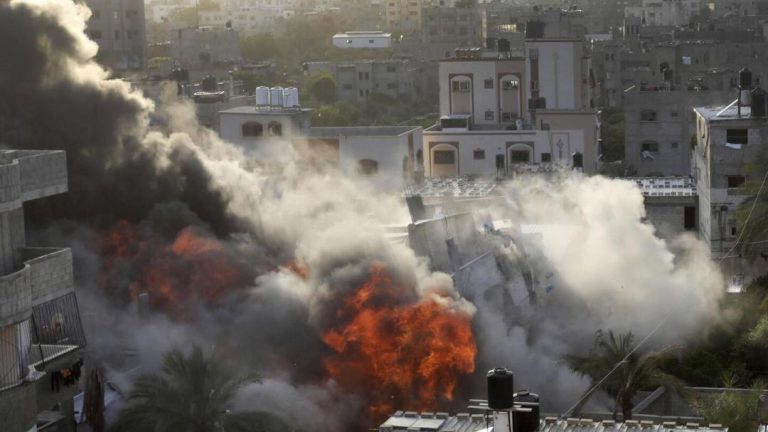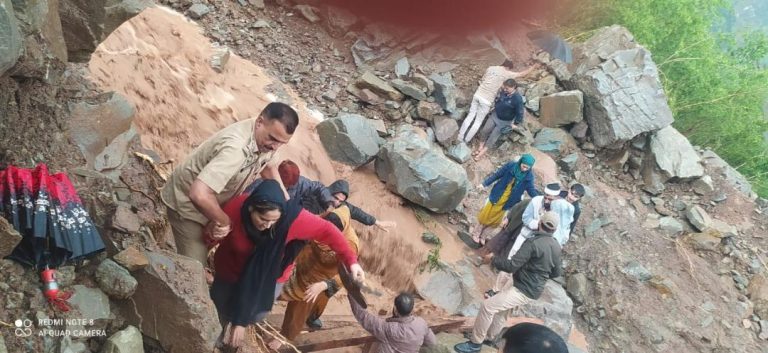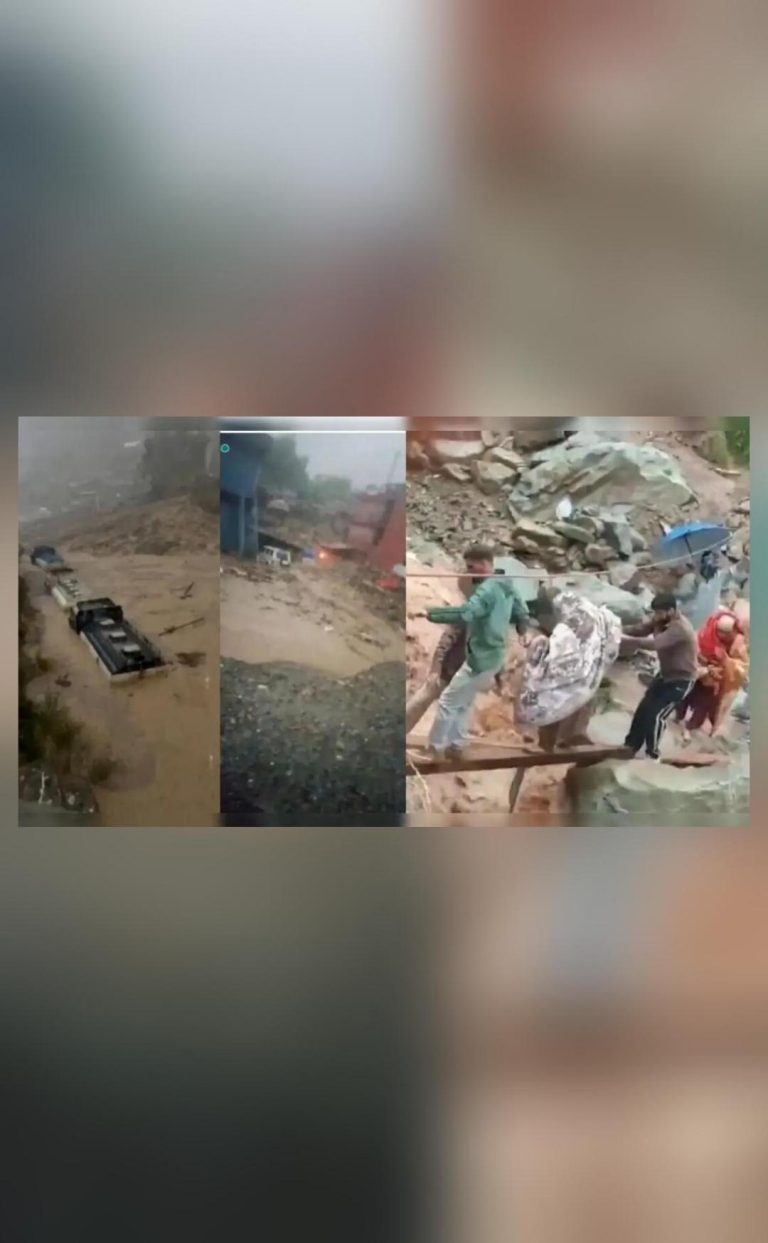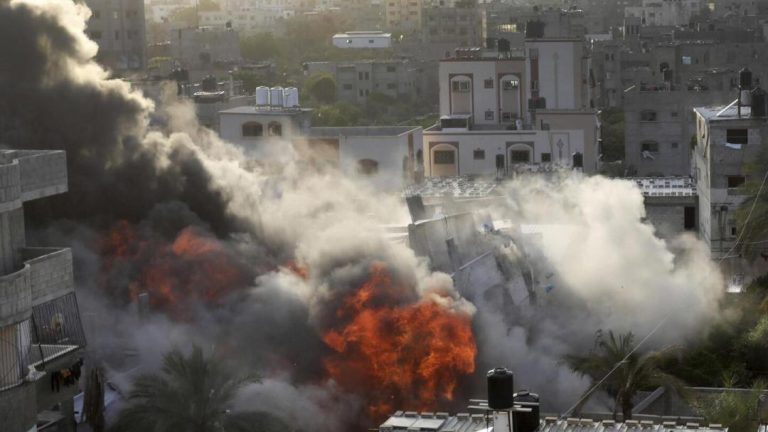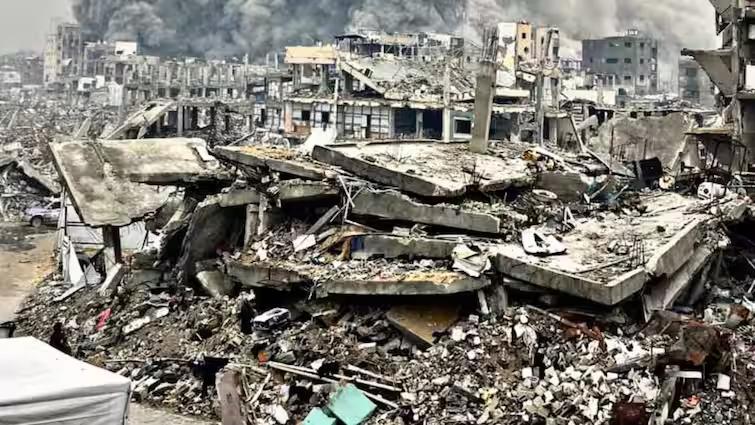
France, Germany & UK Call for ‘Immediate Return’ to Gaza Ceasefire
The ongoing crisis in the Gaza Strip has taken a new turn, with the foreign ministers of France, Germany, and the UK urging an “immediate return” to a ceasefire. The call comes in the wake of Israel’s recent decision to break the ceasefire and launch attacks on Gaza, causing widespread destruction and humanitarian crises.
In a joint statement, the three European powers condemned Israel’s actions and demanded an immediate end to the violence. “We call on Israel to restore humanitarian access, including water and electricity, and ensure access to medical care,” the ministers said. “We also call on all parties to exercise restraint and to respect international humanitarian law.”
The statement is a clear indication of the growing international concern over the situation in Gaza. The Gaza Strip has been under Israeli blockade since 2007, and the humanitarian situation has been deteriorating rapidly. The recent escalation of violence has brought the situation to a boiling point, with thousands of Palestinians displaced and many more in need of medical care.
The ceasefire between Israel and Hamas, which had been in place since 2018, was broken on May 10 when Israeli forces launched a series of airstrikes on Gaza. The attacks have continued ever since, with both sides exchanging fire and causing widespread damage.
The international community has been calling for a ceasefire and an end to the violence for weeks, but so far, there has been little progress. The United States has been lukewarm in its response, with President Joe Biden expressing “deep concern” over the situation but stopping short of calling for a ceasefire.
The European Union, on the other hand, has been more vocal in its condemnation of Israel’s actions. The EU’s foreign policy chief, Josep Borrell, has called for an immediate end to the violence and for Israel to respect international humanitarian law.
The situation in Gaza is dire, with many families forced to live in crowded and unsanitary conditions. The lack of access to basic services like water, electricity, and medical care is exacerbating the crisis, and many people are at risk of serious illness or injury.
The international community has a moral obligation to act to protect the people of Gaza. The UN has called for an emergency meeting to discuss the situation, and there are growing calls for an international inquiry into the violence.
In the meantime, the people of Gaza are paying the price for the failure of their leaders to agree on a long-term solution. The crisis is a stark reminder of the importance of diplomacy and the need for international cooperation to resolve conflicts.
Background
The situation in Gaza has been volatile for years, with frequent outbreaks of violence and a growing humanitarian crisis. The Gaza Strip is home to over 2 million people, many of whom are struggling to survive in difficult conditions.
The blockade imposed by Israel has made it difficult for people to access basic goods and services, and the economy has been in a state of collapse. The lack of access to electricity and water has made it difficult for people to maintain their homes and businesses, and the situation is exacerbated by the lack of medical care and other essential services.
The recent escalation of violence has brought the situation to a boiling point, with many families forced to flee their homes and seek shelter in UN-run schools and other makeshift facilities.
Conclusion
The situation in Gaza is a stark reminder of the importance of diplomacy and the need for international cooperation to resolve conflicts. The foreign ministers of France, Germany, and the UK are right to call for an immediate return to a ceasefire and for Israel to respect international humanitarian law.
The international community has a moral obligation to act to protect the people of Gaza, and it is essential that we work together to find a long-term solution to the crisis. The people of Gaza are paying the price for the failure of their leaders to agree on a solution, and it is up to us to take action to ensure that they receive the aid and support they need.
Source:



